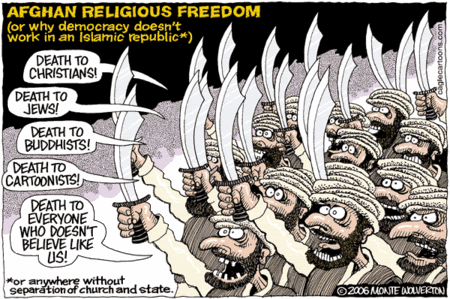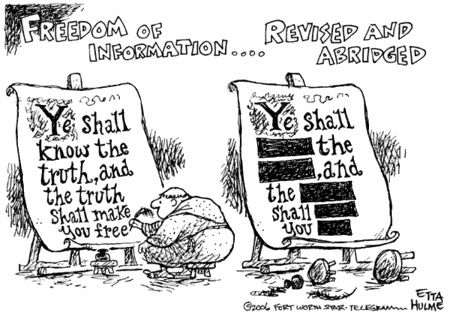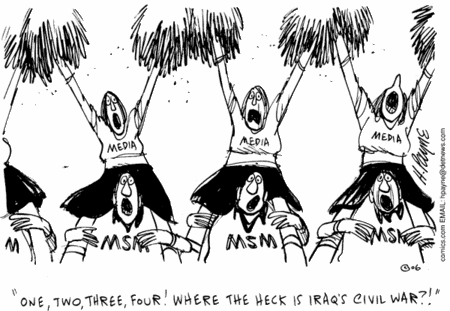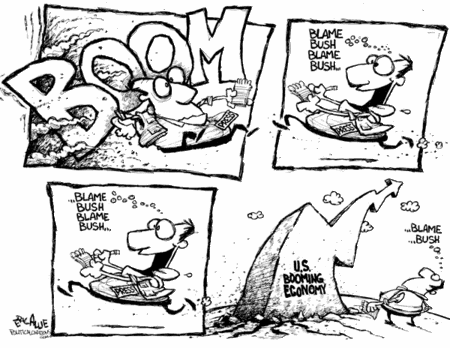Back when I was a young and inexperienced psychiatric resident learning about psychiatry, I saw a middle-aged woman patient who was angry and upset at the "system", which she claimed didn't care about her or her needs. According to her, she had been a patient for years and no medication had ever worked; and noone had ever helped her. Noone had ever even cared. In my youthful naiivte, I became distressed when she pointedly included me in that pronounciation.
"You think you are so much better than me," she sneered at me, cutting me to the quick. "You've had the benefit of a good family, a great job, and all the opportunities of life. You have never suffered! You have no idea what its like to have a real depression like I do. I have suffered terribly. I have no money. I don't even have enough to get home on the bus and will have to walk all the way to the hovel the system is making me live in. And you don't even care!"
She went on in that vein for quite some time. Novice that I was, I didn't listen further because I was anxiously mulling over her words and concluding that I was indeed a selfish jerk with unrealistic expectations of this poor, sick lady. Who was I to judge her suffering? I had everything, she had nothing. I felt really bad.
Impulsively, as she got up to leave, I pulled out my wallet and gave her a twenty dollar bill. This should help a little, I told her, feeling happy that I could at least do something to help her; and that I could show her that I really did care about her plight. She mumbled a grudging thank you without looking at me and left.
Whatever narcissism lay beneath my gesture (and acting out rescue fantasies is a very narcissistic undertaking), looking back, I know that I genuinely wanted to help her; to engage her and let her see that I cared. In all honesty, I knew that I gave the money partly to make myself feel good, too. She had made me feel uncomfortable and guilty about her plight and my success-- as if the efforts I made in my own life were somehow responsible for her misery. I wanted to make sure she understood that I wasn't like all those other therapists who "didn't care."
I believed that I had done something good and looked forward to seeing her again, thinking that I had made a positive therapeutic intervention. At least I thought that until early the next morning, when the Patient Rights attorney contacted me to let me know that this patient had filed a complaint against me.
"What?" I cried in outrage. Yes, it was true. She had filed a formal complaint against me because she claimed that I had deliberately tried to make her feel small and worthless. That I had no right to act so "superior" to her.
"Did she tell you that all I did was to give her some money for bus fare?" I asked. The attorney paused delicately. Apparently she hadn't mentioned that fact to him. Nevertheless, he informed me, she wanted me disciplined and absolutely refused to see me again; saying she wanted someone who understood and appreciated her instead of someone who mocked her.
It took me years to understand the complex dynamics of that interaction. At the time, for me it had been a simple gesture of kindness that made me feel good because I was able to help someone I believed was suffering and needed help. It was also an expression of my own narcissistic rescue fantasies and my very human need to be liked. I only came to appreciate much later in my training how such good-intentioned behavior on my part actually sabotages the therapeutic relationship, rather than facilitates it. To expect a patient to like and appreciate me in the context of a therapeutic relationship was an unreasonable thing to do; sort of like expecting a newborn infant will provide you with the love and understanding you lack in your life. I had blundered badly as a therapist and let my own feelings interfere in the relationship with the patient.
But the incident is also useful to focus on the patient's pathology (and not just my own!), which was revealed in that exchange.
To her, my kindness represented a ruthless exploitation of her misery and an attempt to make her feel worse about herself. Yes she wanted my help, but she wanted it on her terms and her terms alone. She wanted to be able to keep her worldview that no one cared about her--and I had threatened that world view by my impulsive gesture. From her [admittedly dysfunctional] perspective, my kindness was yet another example of how the "system" was trying to invalidate her and the ultimate proof that she was correct in her assertions all along.
You begin to see the psychological dead end of this position, I hope? There is no real difference in her mind between someone trying to help her; and someone trying to hurt her. She had found a way to make both actions validate her warped and rather paranoid view of the world. The mechanism of projection is very helpful for this. She may have accused me of thinking I was better than her, but in reality, she was the one who felt superior.
In spite of the insult I apparently inflicted, I should mention that she never gave the money back (not that I had ever wanted or expected it to begin with); and I never saw her again after that.
I couldn't help thinking of this lady as I read about the recent rescue of peace activists in Iraq.
Before I go further, I'd like to emphasize that the peace activists are not "patients" who are in therapy; nor are the coalition forces who rescued them "therapists". Nevertheless, there is a certain symmetry between what happened with that angry patient and the recent rescue of certain activists in Iraq.
By now everyone knows
the story of how these people were rescued by the US and British Military in Iraq and who--instead of being openly thankful of their rescue gave
only grudging thanks, refused to
cooperate with their rescuers; and basically insulted the rescuers as being the "root cause" of their being kidnapped in the first place; while praising their captors, who had ruthlessly
tortured and murdered one of their fellow activists.
Many people rightly wonder, what kind of bizarre psychopathology could make people behave in this perverted fashion? Well, it ain't "love" and it certainly isn't "peace" that lies behind their actions, much as they would like to believe that is the case.
I submit that it is the same psychopathology of victimhood, with its concomitant psychological projection and denial of personal responsibility that was evident in the patient discussed earlier.
In the case of the peace activists' rescue, there may be some slight degree of neurosis in some of the expectations of gratitude. As my grandmother used to say, a good deed is its own reward, after all. But OTOH, simple human decency would dictate something more than the graceless attitude exhibited by the rescued toward the rescuers; as well as the appeasement and further enabling of murderous and brutal agenda of their captors. In short, those who were rescued display an enormous degree of self delusion, characterized by the moral contortions and pervasive lying to one's self that goes on in the minds of people who clutch their victimhood and/or martyrdom tightly as a shield against reality.
As I learned all those years ago, no good deed done for the professional (and paranoid) victim will ever go unpunished.
For someone that invested in victimhood, it is far too threatening to be confronted by evidence that undermines one's worldview. My patient was certainly not prepared to give up that worldview--no matter how dysfunctional it was for her. She needed to see my help as her
entitlement; something she was owed and had rights to from the beginning -- not as something I granted. By giving her the money, not only had I insulted her and her worldview; I had implicitly set up the expectation that she would do something to earn it. And the truth was that she didn't want to earn it--she wanted it because it was her god-given right as one of the victims of the world. If any benefits accrued to me, then it automatically became invalidating to her.
Because, in her world, she claims the morally superior high ground. And, while she may be depressed, poverty-stricken and completely dysfunctional in the real world, she can always rejoice in her [self]righteousness and my oppressive brutality.
The same holds for the topsy-turvy world of the the activists and their parent organization. They are psychologically resistant to examining any lies that form the foundation of their belief system, which allows them to see themselves as morally superior beings. It allows them to shirk the responsibility and consequences of their own ill-thought out behavior that led to the death of one of their own. Not only do they shirk their own responsibility for events, but these champions of the oppressed, have enabled and protected those who casually murdered and tortured one of their own (and undoubtedly will do the same to future captives). In a breathtaking inversion of morality, decency, and common sense, they applaud their captors and protect them even as they accuse their rescuers of the responsibility for a plight that was brought about by their own thoughtless and "loving" behavior.
In the worldview they share with my former patient, one's victimhood is sacred. Once again, we find that people who have willingly drunk from the poisoned well of an ideology that has destroyed millions of souls and brought untold misery into the world. If there are the only two options in life--to be a victim or to be an oppressor-- they choose to be one of the saintly oppressed. Capture and abuse by a recognized victim group that they can magnanimously absolve of guilt, only adds to their faux saintliness; as does chiding and insulting those who would rescue them from their self-imposed martyrdom.
Think of it this way--these are people (both my patient and the peace activists) who not only are incapable of looking directly into the eyes of evil and recognizing its guilt; but they are equally incapable of looking into the eyes of the good and appreciating its innocence. And for good measure, they haven't been able to look in the mirror for a very very long time.
They have been lying to themselves for years; avoiding acknowledging their own feelings or taking responsibility for their own lives or actions; and projecting all their unacceptable feelings onto others. Both Western culture--America in particular; and the "system" are handy dandy repositories for those unacceptable feelings.
Some part of them recognizes that something dreadful is going on in the world, but they cannot face it directly because it is too threatening to their worldview and their holy scripture; and facing the truth might make them have to go into their heart of hearts to examine the origins of that dreadful terror. Hence the need to displace their anxiety to a less threatening authority figure (e.g.,
Bush or America; or even those that rescue them from death) is easier than facing the dread source of their anxiety.
Three psychological defense mechanisms (projection, denial, and displacement) are the source almost all human suffering--from the individual misery of my patient all the way to the societal miseries that result from racism, anti-semitism, sexism and genocide; as well as the brutal and fanatical terrorism that we now see all over the world.
If the peace activists and others of their ilk want to understand the wellspring of man's inhumanity to man, then they need to take a good, long look in the mirror.
UPDATE: I think I must defer to the wisdom of Gagdad Bob of
One Cosmos, who said in the
comments to another post--but which also seems appropriate here:
Victimhood is empowering, because at least it allows you to actively participate in your own subjugation.
 This week's winners in the Watcher's Council are now posted at the
This week's winners in the Watcher's Council are now posted at the 












